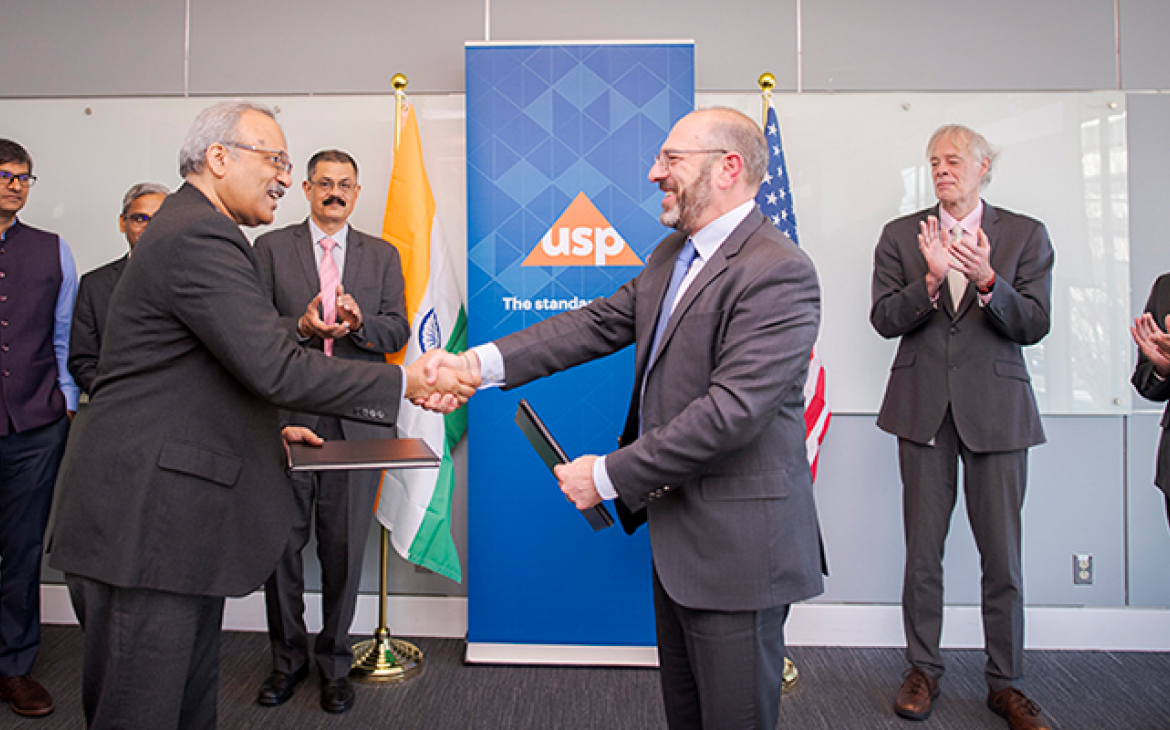Universal health coverage requires access to quality-assured medicines. Unfortunately, substandard and falsified medicines are highly prevalent in all those countries where under-resourced regulatory authorities cannot adequately oversee medicines along complex, globalized supply channels. Representatives of the World Health Organization (WHO), regulators, donors, and operational organizations discussed how to overcome this problem at an event held in the margins of the 72nd World Health Assembly in Geneva on May 21, 2019. The event was co-hosted by the Government of Belgium, the Bill & Melinda Gates Foundation (BMGF), the Swedish International Development Cooperation Agency (SIDA), the Republic of South Africa’s Department of Health, and USP.
The report of the event, “Assuring medicines quality in medicines procurement”, is now available, and you may access and download it here.
You will see that the final “Call to action” includes the following points:
- Call on WHO to continue to play a leading role in providing guidance on quality assurance policies and practices in medicines production and procurement, as well as in facilitating information-sharing and coordination among member states and relevant stakeholders.
- Call on WHO to expand the scope of products eligible for the prequalification program, and to further strengthen their programs to build regulatory capacity to oversee and assure product and supply chains quality by national and regional regulatory authorities.
- Call upon Member States and others to support adequately both the prequalification program and the national and regional regulatory systems strengthening program at WHO.
- Call on the governments in low- and middle-income countries (LMICs), the governments in exporting countries, and all donors and implementers to implement effective procurement policies and practices in all programs and contexts to help assure the right of everyone to receive quality-assured medicines and medical products.
- Call on all purchasers and their funders to prioritize effective quality assurance requirements in their procurement policy and, in particular, to purchase only from accredited suppliers whose products meet or exceed WHO standards of product quality. This would help positively shape the market, by creating solid market incentives for manufacturers and suppliers to invest in quality.
- Call for predictable, accountable, and transparent mechanisms in procurement practices and policies for the benefit of patients and communities in LMICs.


